How to Turn Horse Stress into Confidence: Separation Anxiety in Horses
For: Nestor Imberti Date: 09/01/2025
"It's not a bad horse, it's a sad horse." (Andrew McLean)
That phrase perfectly summarizes what many riders and horse owners face when they see their horses distressed by the absence of a companion or a human figure. Separation anxiety in horses, far from being an act of defiance, is a deeply rooted emotional response in horses due to their nature as social animals. This behavior can be managed with proper horse training and an understanding of their physical and emotional needs.
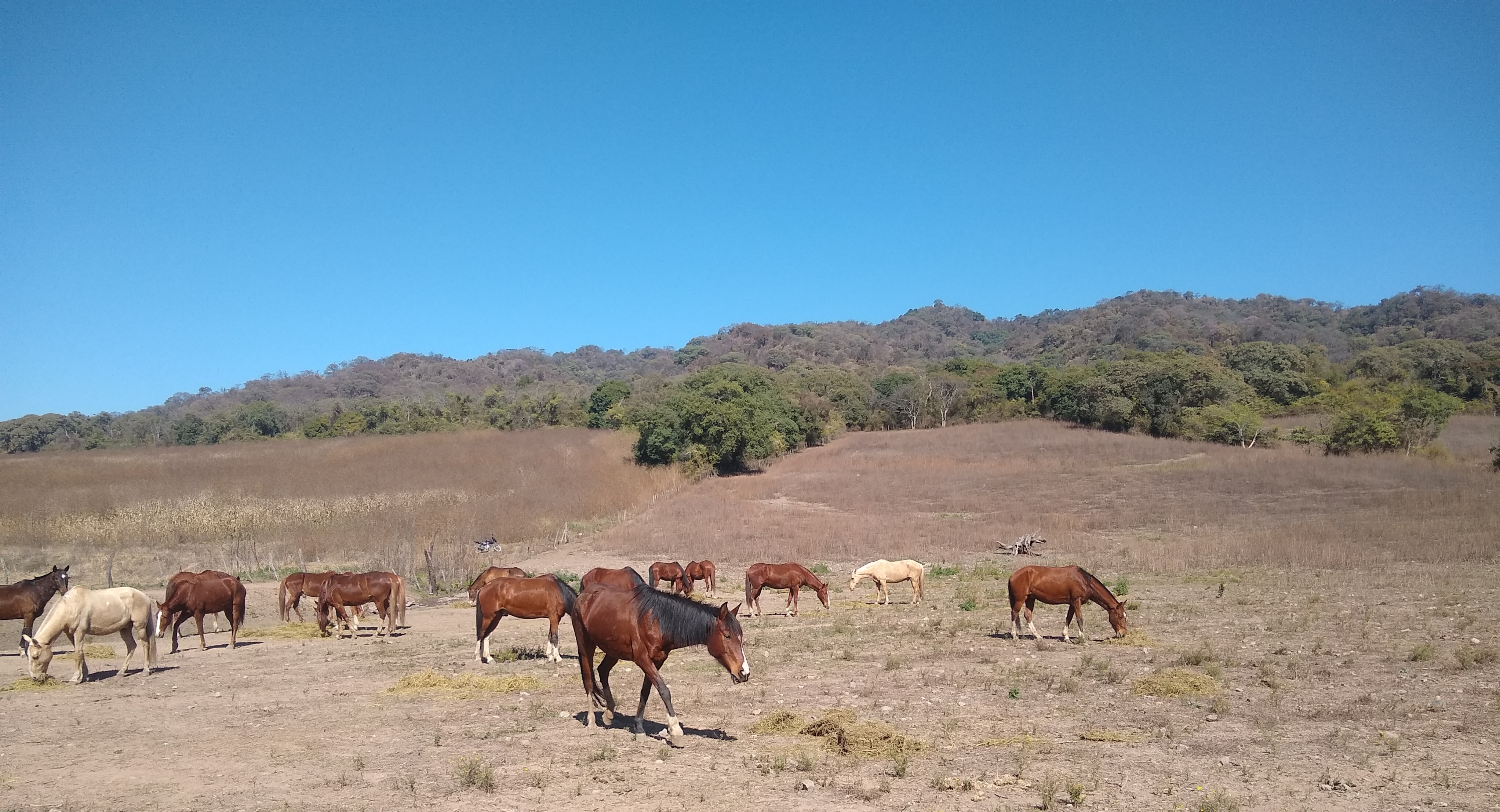
What is separation anxiety in horses?
Separation anxiety in horses occurs when a horse experiences distress when separated from a herd companion, another animal, or a human with whom it has bonded. This behavior is particularly observed in situations such as:
- Competitions: when a horse is taken to the ring and its companion is left behind in the trailer.
- Stables: when a box neighbor temporarily disappears.
- Pastures: when a horse is separated from its usual group.
Although we understand that horses are herd animals and need companionship to feel secure, not all react the same way. Some horses seem to accept separation calmly, while others show signs of severe distress.
The root of the problem: The horse's social nature
According to Dr. McLean, an expert in equine behavior, separation anxiety is closely linked to attachment theory. This principle, well-studied in humans and dogs, also applies to horses as social animals.
Horses, like other grazing herbivores, depend on the company of their herd to survive. In the wild, a horse that ventures alone becomes easy prey for predators. This collective security instinct is so deeply ingrained that it translates into distress when a horse is isolated.
In some cases, horses also form bonds with humans. Although there isn't enough research to confirm that this bond is similar to that of dogs with their owners, anecdotal evidence suggests that horses perceive certain humans as safe havens. This goes beyond simple food association and demonstrates the importance of interaction and shared time.
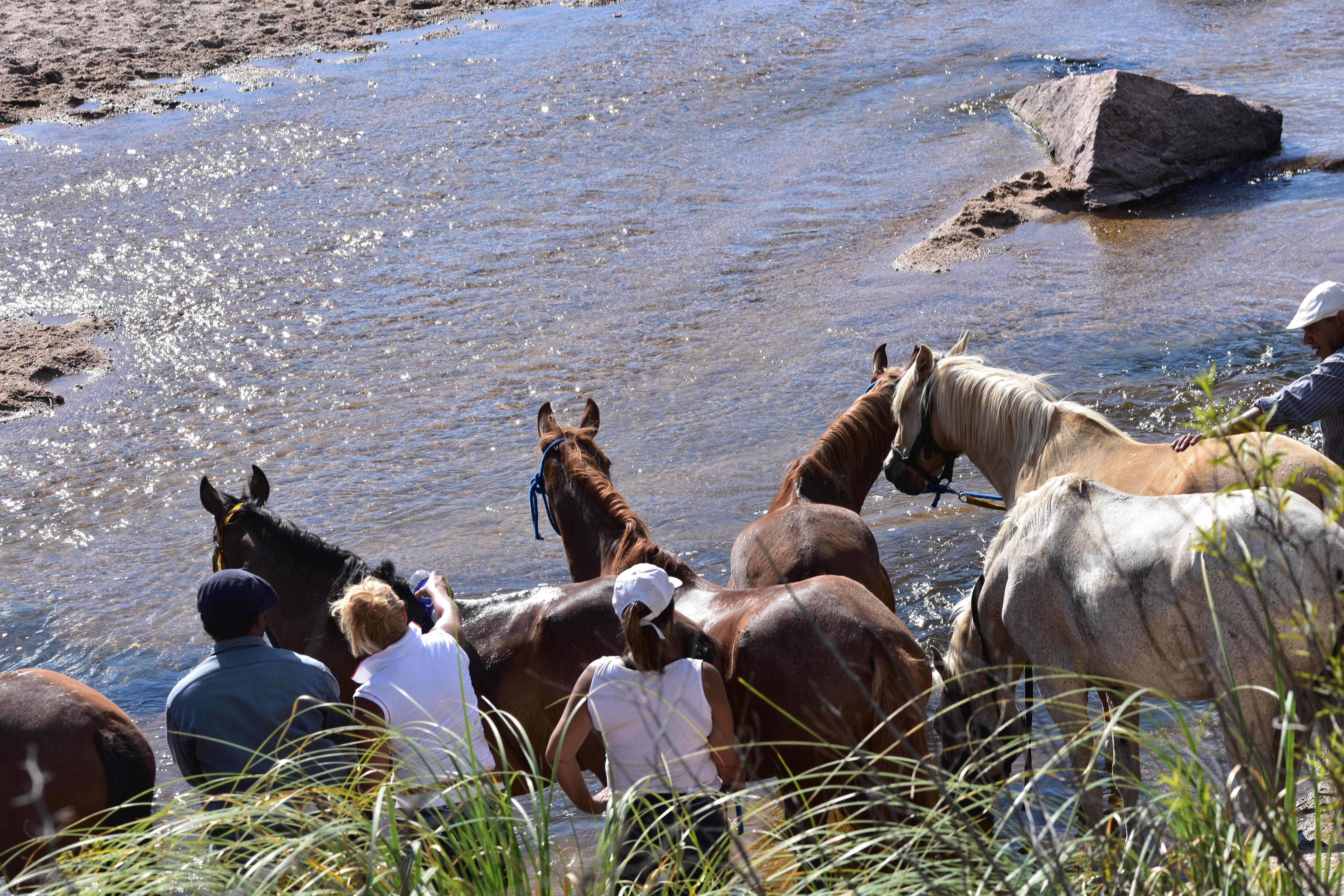
Factors contributing to separation anxiety in horses
- Sensitivity and insecurity: More sensitive or insecure horses are more likely to develop separation anxiety.
- Social bonds: The stronger the bond with another horse, a human, or even a companion animal like a sheep, the greater the distress upon separation.
- Training confusion: Horses facing inconsistent signals or inadequate training may develop insecurities that worsen this behavior.
- Mental state: A confident and mentally balanced horse is less prone to severe anxiety.
The impact of welfare on separation anxiety
To address separation anxiety in horses, it's essential to understand the five domains of animal welfare science. These provide a framework to assess and improve a horse's quality of life:
- Nutrition: A proper diet with access to forage for at least 13 hours a day significantly improves a horse's welfare.
- Environment: A safe, clean, and comfortable environment is essential.
- Health: The absence of injuries or illnesses contributes to the horse's emotional balance.
- Behavior: A horse must have opportunities to express natural behaviors, such as grazing and socializing.
- Mental state: Horses must feel interested and confident, not fearful or stressed.
Welfare goes beyond mere physical care. Ensuring that the horse is mentally and emotionally balanced significantly reduces its propensity to suffer from separation stress.
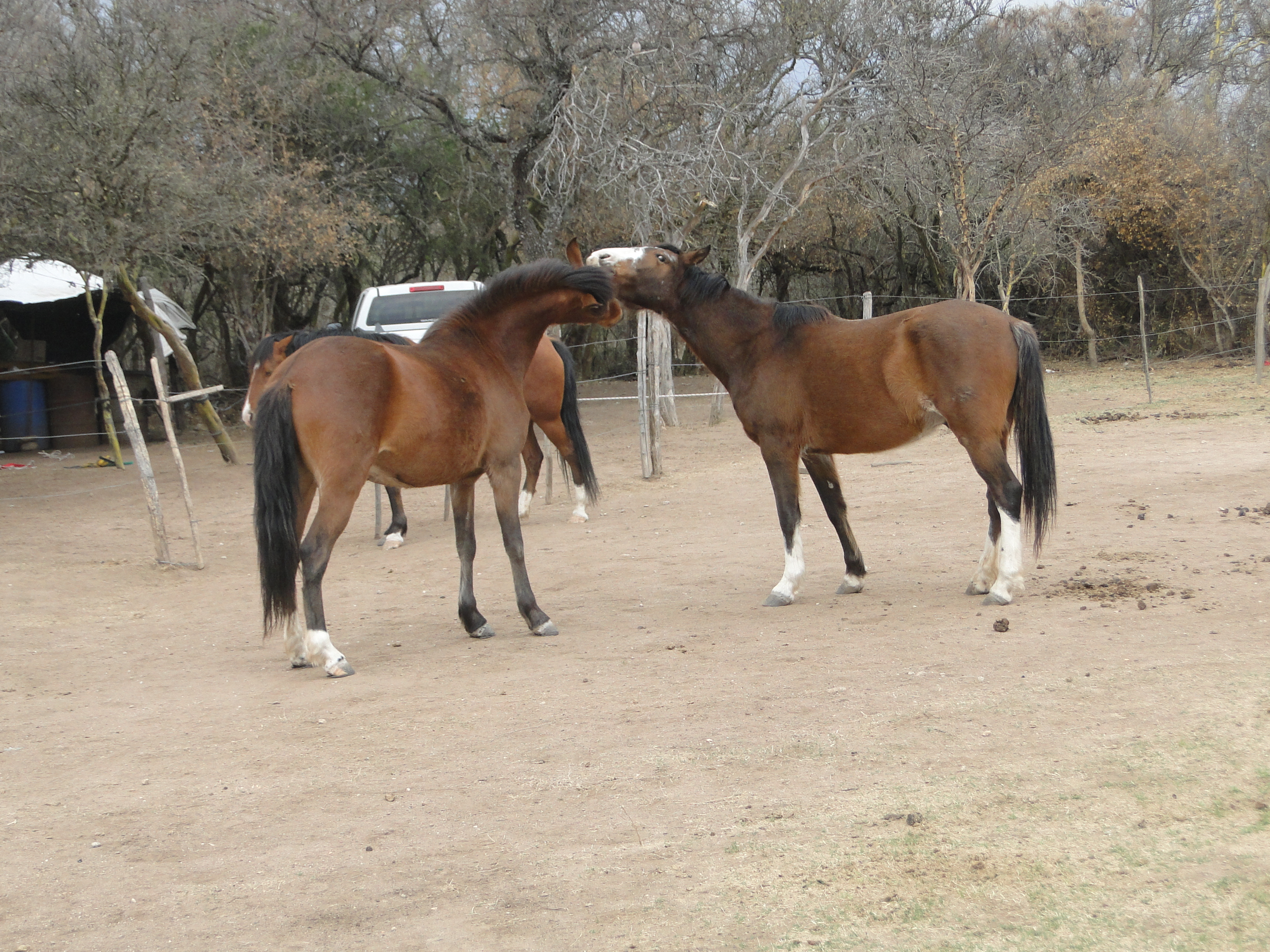
The evolution of the domestic horse and its relationship with anxiety
The domestication process has influenced how horses handle anxiety and external stimuli. Although modern horses retain their flight response, they have also developed a great capacity to habituate to new environments and situations.
For example, a horse may initially be startled by a hot air balloon flying overhead, but if no negative consequences occur, it will quickly learn to ignore it. This adaptability is a testament to the influence of domestication on their behavior.
However, selective breeding for speed competitions has heightened the flight response in some breeds, such as thoroughbreds, making them more reactive and prone to anxiety compared to calmer breeds bred for agricultural work.
Would you like to be part of a group with an equestrian soul?
Join the Ampascachi Community. Obtain exclusive benefits for your holidays.
We tell you how to start, train and take care of your horse.
Interviews with direct providers of riding tours around the world.
Opinions of outstanding equine scientists and personalities in the equestrian sport world.
How to address separation anxiety in horses
Separation anxiety cannot be resolved with quick or superficial solutions. Instead, an integral approach is required, which includes:
Clear and consistent training
Training should focus on establishing clear and consistent signals. For example, many horses are trained to follow their handler's steps, but this can cause confusion if the horse is tied and the handler walks away. It is essential to practice exercises that teach the horse to remain calm and confident even when alone.
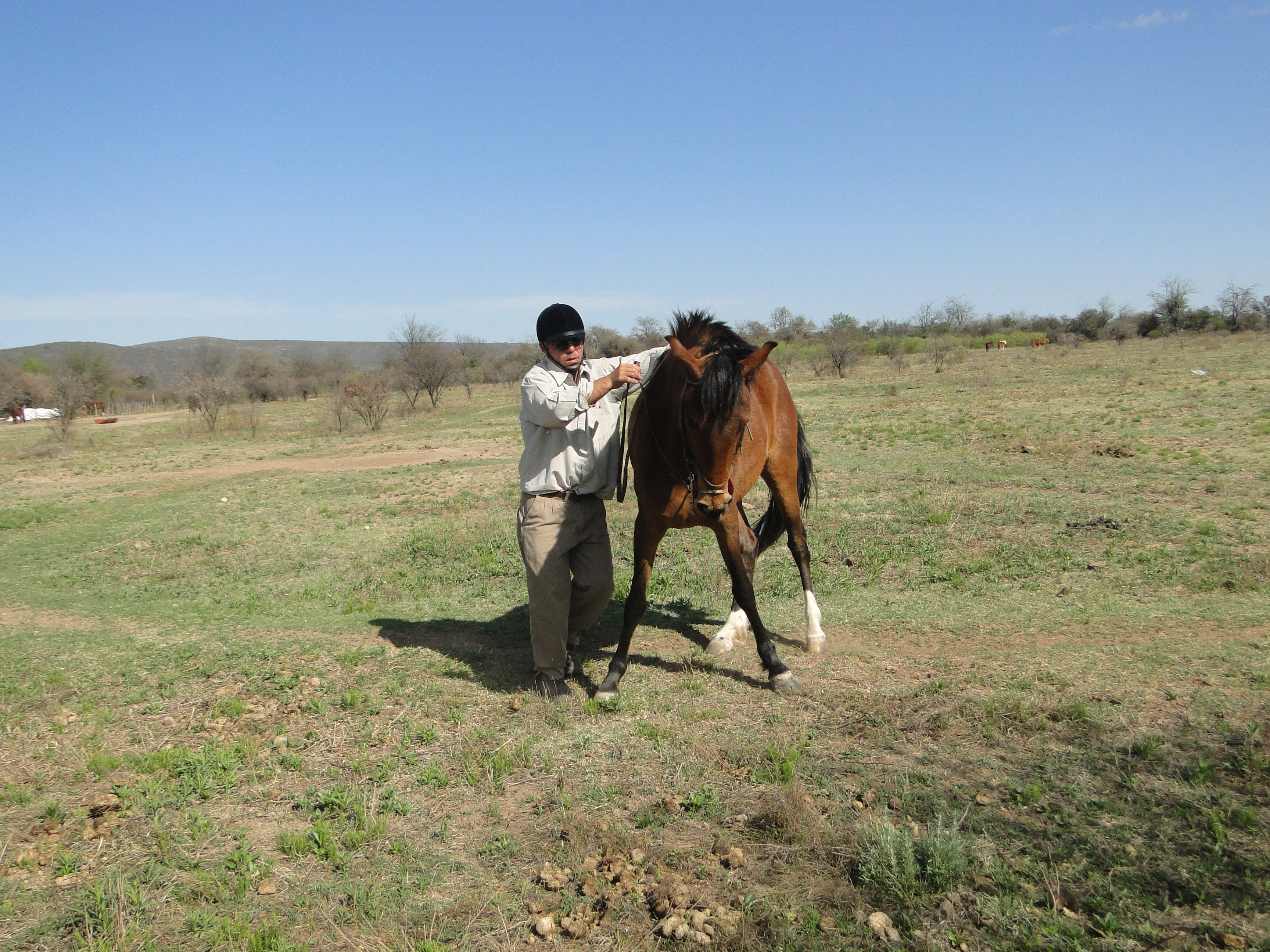
Recognizing coping mechanisms for loneliness
When a horse is alone and distressed, it may display one or more of the following coping mechanisms:
- Disconnection: The horse appears shut down and uninterested.
- Hyperactivity: It tries to escape or shows signs of extreme tension.
- Aggression: It may become hostile toward other horses or humans.
Gradual exposure
A young horse should not be taken to a busy event expecting it to handle the situation well. Exposure to new environments and separations should be done gradually and positively, allowing the horse to develop confidence over time.
Encouraging a secure mental state
A horse that feels safe and confident will be less prone to separation stress. This is achieved through positive interactions, proper training, and attention to its basic needs.
Domestication and social adaptation
Despite being herd animals, horses have also demonstrated a remarkable ability to adapt to new social environments. For example, mares often leave their natal herd to join another, while young males are expelled to form their own groups. This adaptability, although inherent, can be influenced by human handling.
In this context, separation anxiety in horses is a manifestation of insecurity. It is not simply about missing a companion; other contributing factors include unclear training or the absence of an enriched environment.
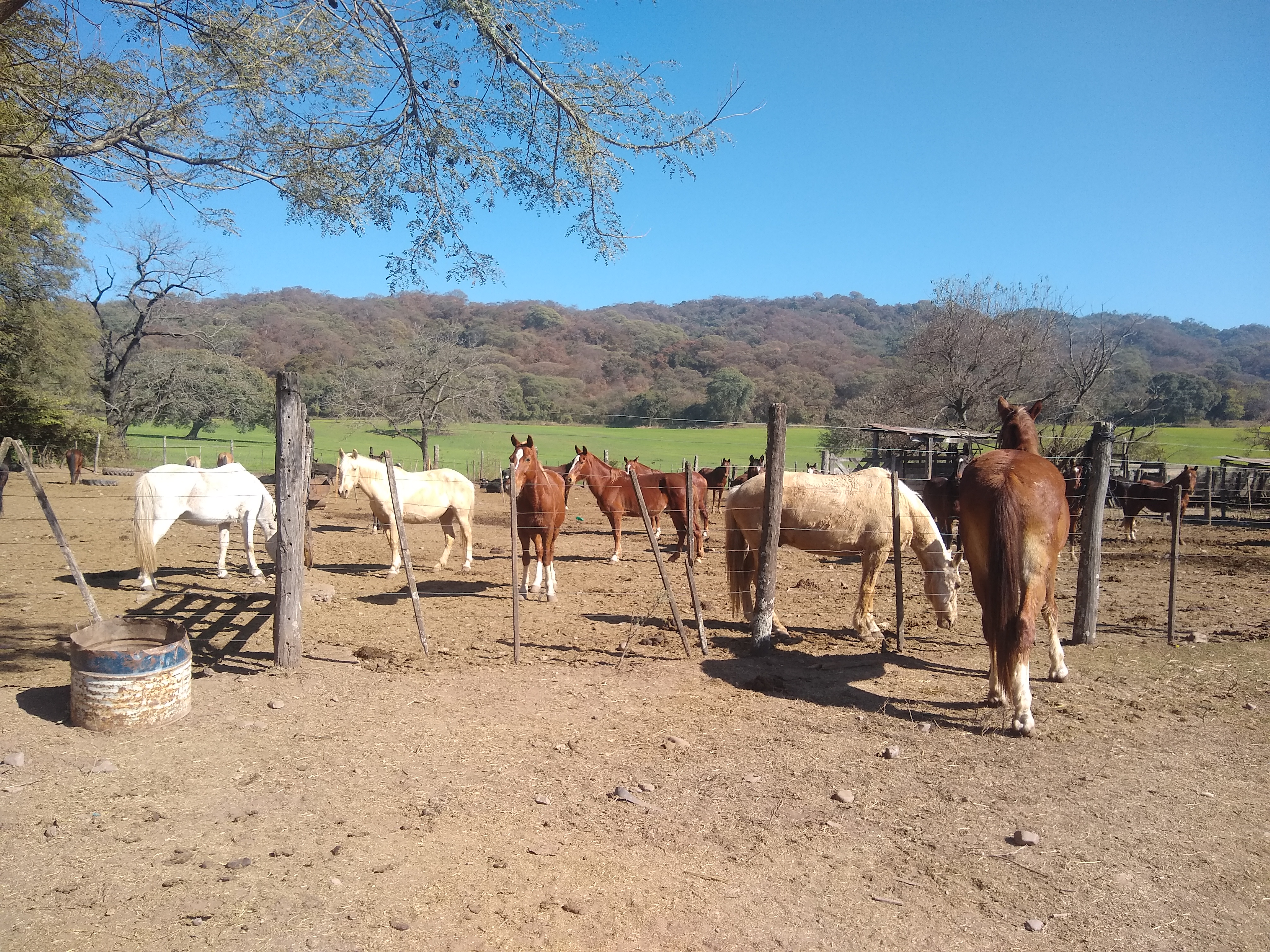
Conclusion
Separation anxiety is not a defect in the horse but a natural response to its innate need for companionship and security. By understanding the roots of this behavior and working on its prevention through consistent training, attention to basic needs, and proper management, it is possible to minimize its impact.
A confident, well-trained, and emotionally balanced horse will not only be less prone to separation anxiety but will also be a happier and healthier companion. As Dr. McLean says: "It's not bad behavior; it's sad behavior. We need to make it happier through consistent training and attending to its basic needs as much as possible."
Subscribe to the Ampascachi Community and obtain benefits and exclusive content. Furthermore, we offer free advice on horses and equestrian tourism.
Would you like to delve deeper into the world of horse training?
Download our free guide on Horse training step by step. There we tell you everything we have learned about horse training in more than 25 years of experience.
And if you want to be a professional horse trainer and get field-based training, you should check out our training program. You will have the opportunity to live in our equestrian centre and experience our full training process with young horses.
~
THIS COULD ALSO BE INTERESTING
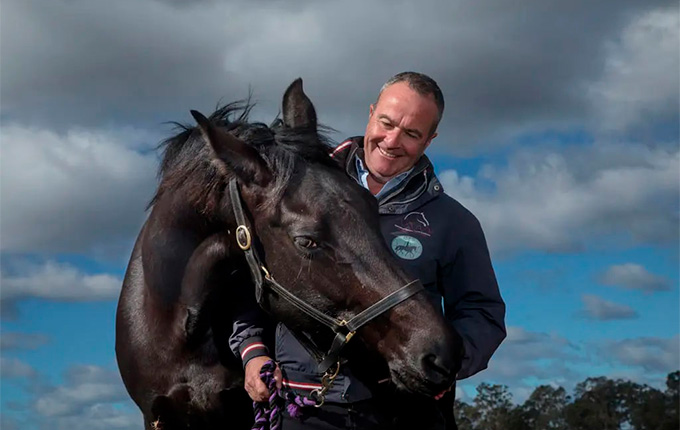
Dr. Paul McGreevy: specialist in horse behaviour and welfare
We have interviewed Dr. McGreevy to gain insight into equine behaviour, horse welfare and the application of learning theory in equitation science.
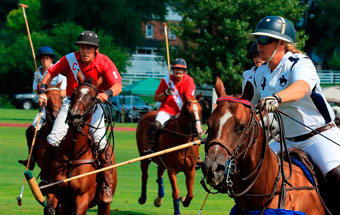
Equestrian sports & games: Polo
Do you know the rules of Polo, the oldest of equestrian sports that was played by nomadic warriors of Central Asia? Polo is becoming considerably popular nowadays.
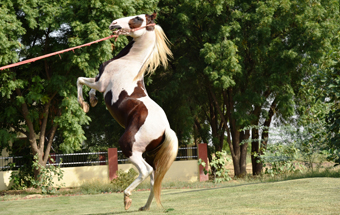
Horseback riding holidays on a Marwari horse in India
Horseback riding in India is exciting, and even more so if you ride on the back of a Marwari horse, an intriguing, noble and brave breed with curved ears.
~
WHAT IS YOUR OPINION? LEAVE A COMMENT
Planning your horse riding holidays?
Join the Ampascachi Community. You will get exclusive advantages and guidance for your next horse riding holiday.


 German
German French
French Spanish
Spanish